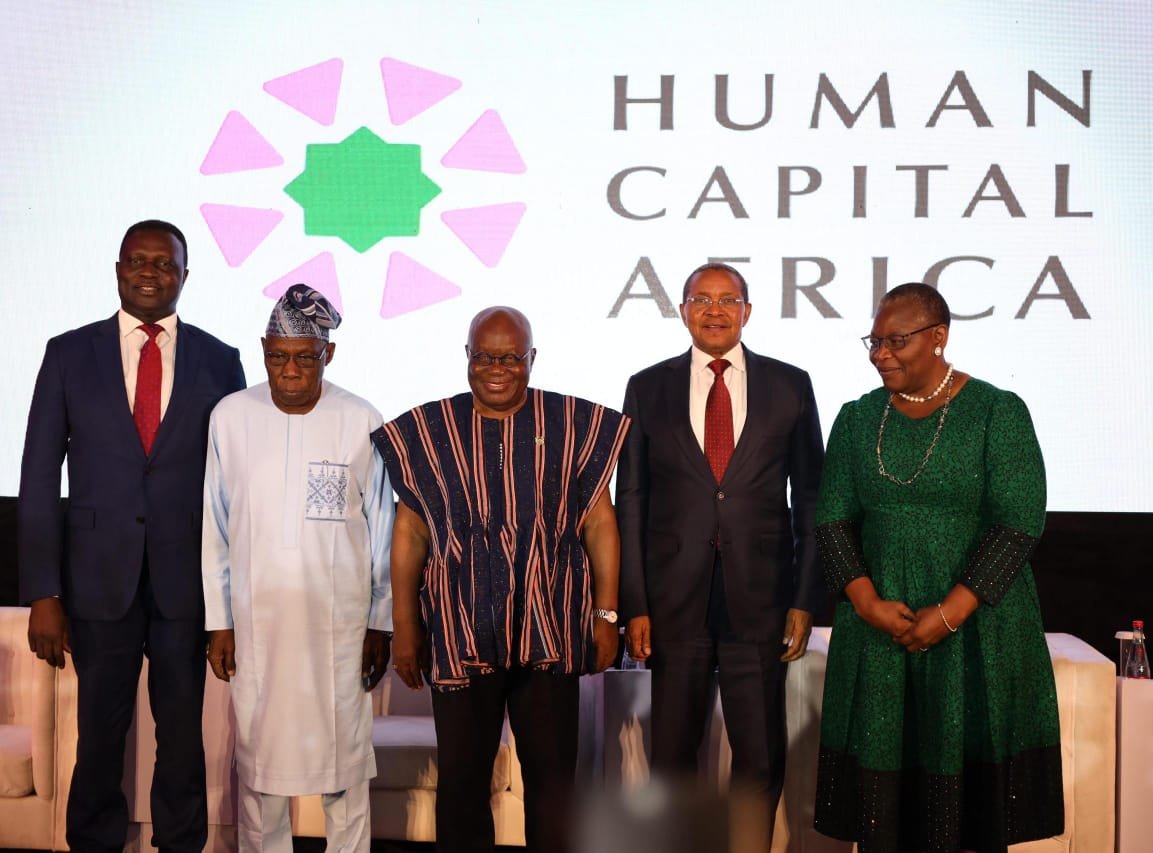By Paul Ejime
Worried about the poor state of learning in Africa, “With nine out of 10 children unable to read with understanding or do basic maths by the age of ten,” African leaders and education stakeholders have called for an actionable Strategic Plan to prioritise Foundational Learning as the bedrock of education, human development and the continent’s accelerated progress.

The Communique at the end of a high-level meeting on the learning crisis in Africa on Tuesday, July 16, on the sidelines of the 2024 African Union (AU) Mid-Year Summit in Accra, Ghana, also called for “a decade on education, a strong African voice and commitment to foundational literacy and numeracy at the next February 2025 AU Summit and beyond.”
The meeting declared that the “African Union must, therefore, make a continental commitment on foundational learning, and member states must build on the political commitments they have made to accelerate action that ensures that Africa’s children are equipped with the skills to fulfil their potential.”
It also called on African leaders to “establish and drive a continental mechanism to enable constructive peer learning and knowledge sharing between governments and development partners so that the innovative work happening at local and country level can be scaled. “
Attendees of the event organised by Human Capital Africa (HCA), the brainchild of Dr Obiageli Ezekwesili, Nigeria’s former Education Minister and World Bank Vice-president for Africa, included Ghanaian President and Chief Host Nana Akufo-Addo, Nigeria’s former President Olusegun Obasanjo, his Tanzanian counterpart Jakaya Kikwete, Nobel Laureate and former Liberian President Ellen Johnson-Sirleaf and Dr Benjamin Piper of the Bill and Melinda Gates Foundation (who both joined on-line).

Others were Ghana’s Education Minister Yaw Osei Adutwum, Zouera Youssoufou, of Dangote Foundation and Adama Gaye, co-founder of the School of Politics, Policy and Governance (SPPG) Senegal, an affiliate of SPP, Nigeria, both linked to #FixPolitics and all Ezekwesili’s research initiatives.
The meeting urged “Heads of Government, through the African Union, to take… decisive steps to address the learning crisis” and “declare it is unacceptable that nine (9) out of ten (10) of our children are unable to read with understanding and do basic maths by age 10.”
Continental leaders should also “Collectively commit to all children reading with comprehension and doing basic mathematics by the age of ten by 2030 as the foundation for future academic success and beyond,” the conferees said in a *Call to Action on Foundational Learning,* the Communique urged.
Africa accounts for about 100 million out of the estimated 240 million out-of-school children globally.
The crisis is such that the percentage of children involved in learning, and what they are learning is unclear.
“Following these discussions, we are compelled to issue a collective communique on the urgent imperative to call for a decade on education that will prioritise action on literacy and numeracy at foundational levels if the continent is to achieve its Agenda 2063 development goals and national development visions,” added the Communique.

“We recognise the continent is at an inflexion point,” the Communique said and urged African leaders to “prioritise foundational learning, ensuring the natural potential of young people is evenly distributed, or risk having economic growth and human capital development held back.
“The crisis is solvable, but to drive change at scale, we need more demonstrations of impactful programmes, more measurement of learning, and rapid data available to make the shifts to improve,” the meeting affirmed, lamenting “that millions of African children are not transitioning, completing their education and dropping because of low learning levels in the early grades.”
The dialogue also emphasised, “that the response to critical development priorities including healthcare, food security, climate change, inclusive economic green growth, digital development, gender equality, economic empowerment and security is interconnected with our ability to develop and build our human capital, for which literacy and numeracy are fundamental building blocks.”
Identifying lack of human development in education as a “fundamental barrier to achieving our continent’s potential and we must take ownership, act, and build scalable solutions suited to our continent, today,” the Communique noted that “current levels of data collection, use on the continent and reporting are insufficient to inform effective policy decisions, resource allocations, and targeted interventions.”
It acknowledged that “the delivery of Agenda 2063 and its social, economic and developmental objectives is deeply connected with learning outcomes and that the vision will not be achieved if the learning crisis is not addressed.”
The meeting appreciated “efforts being made to drive awareness and action, enable solutions and encourage peer learning by Human Capital Africa, the Association for Education Development in Africa (ADEA), PAL Network, other regional and national education stakeholders, and development partners supporting them.”
Ghanaian President Akufo-Addo, described the foundational learning problem as a “severe existential crisis.”
“But before any solutions, there must be a recognition that we have a crisis and therefore define interventions that make sense and have maximum impact with accountability variables and peer review for immediate and short-term assessment,” he added.

Promising to escalate advocacy to the African Union, he underscored the importance and urgency for African countries to scale up investment in human capital through sizeable budgetary allocations to the education sector.
In his intervention, ex-President Obasanjo said education “is not only an issue of human development, but a matter of life and death,” adding: “Without education your life is incomplete; if you don’t have it (education) you cannot develop your innate ability.”
Chief Obasanjo, who was honoured with the *“Distinguished Education Champion of Our Time,”* award by HCA at the event, acknowledged the AU’s Agenda 2063 objectives and the Declaration of 2024 as the Year of Education.
However, he noted that learning/education “is not a one-year or one-decade issue but a life-long” pursuit.
The Nigerian leader, who is credited with introducing the Universal Primary Education (UPE) and Universal Basic Education (UBE) Schemes to entrench foundational education during his two tenures as Head of State and President of Africa’s most populous nation, now struggling with more than 20 million out of school children, said education should rank next to health, security, food and nutrition in that order.
Chairing the Media Dialogue session of the meeting, Chief Obasanjo, also advocated for school feeding for the well-being of the children and to encourage school attendance, especially in poor communities.
He also stressed the need to improve the working conditions of teachers, as well as the teaching and learning environment.
Underscoring the need for domestic fund-raising to finance education, ex-president Kikwete, Chair of the Global Partnership on Education (GPE) urged African countries to take advantage of the GPE scheme which allows countries to plough into education their debt servicing/repayment with the GPE adding a matching $US1 million to every US$3 million.
He explained that Cote d’Ivoire has realised more than US$220 million under the scheme, stressing that funds from the scheme, should also be prudently spent to ensure transparency and accountability.
“It is the education and future of our children that are at stake, not the children of development partners,” Kikwete said, noting that despite previous undertakings only 19 African countries had signed up to allocate 15% to 20% of their national budgets to education.
The former Tanzanian leader described the school drop-out and completion rates in Africa as unacceptable and emphasised the need for mechanisms for follow-up and benchmarking of progress or milestones.
Ghana’s Education Minister Adutwum also said the emphasis on memorisation over critical thinking system of education is a major barrier to Foundational Learning and human capital development in Africa.
To optimise the benefits of education and leapfrog development and progress, he said African countries should leverage technological innovations and adopt a progressive system of education “to innovate ourselves out of poverty.”
In her opening remarks, Dr Ezekwesili, a co-founder of Transparency International, who is also known as “Madam Due Process,” because of her attention to accountability details, used the story of a girl-child named Abeo to illustrate the plight of African children in Foundational Learning and the transformation of their lives with improved opportunities.
“Learning is everything,” she said, adding that it was bad enough that “millions of children are not in school, but many are in school but are also not learning.”
“A single Abeo is not enough for any country to develop, to achieve Agenda 2063 or the Africa we want,” the former minister affirmed.
Dr Piper of the Gates Foundation citing examples in India, Zambia, Botswana and Ghana, explained that the foundational learning problem in Africa was solvable with “political leadership real action at all levels, cost-effective budgeting and structured pedagogy.”
He noted that “a broad community of stakeholders are ready to support and amplify” best practices suited to Africa.
Madam Youssoufou, the CEO of Dangote Foundation, said the Dangote Group understood the business side of foundational education hence its strong support and commitment, including setting up the Dangote Academy for skill upgrade of its technicians and engineers.

*Ejime is an Author, Global Affairs Analyst, and Consultant on Peace & Security and Governance Communications*



